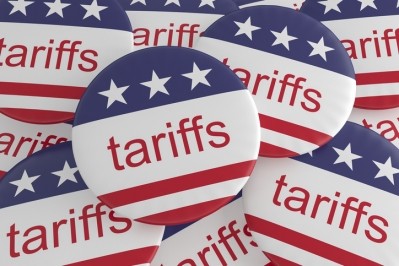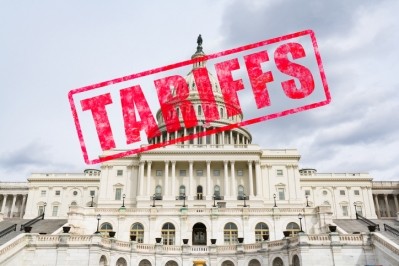Chinese tariffs target swine producers, feed use

The new tariffs, which reportedly became effective on Monday, April 2, included several types of agricultural products ranging from ethanol to pork and different kinds of fruit. The total list, at this stage, includes about 128 items with eight receiving the higher tariff rate.
The announcement from China’s Ministry of Commerce on Sunday, April 1 was a disappointment for US pork producers, said Jim Monroe, spokesman with the National Pork Producers Council (NPPC).
“China is a particularly important market,” he told FeedNavigator. “We’re constantly urging for trade policy that maintains and expands exports.”
The US exports about 26% of the hogs raised every year, and last year China accounted for about 1.1bn in product exports out of a total export market valued at almost $6.5bn, he said. “We’re hopeful that the US can resolve the trade dispute,” he added.
The US runs a trade surplus in pork exports and other feed and agricultural products, he said. That makes the area a natural one to target.
However, Monroe said, the recent conclusion of the free trade renegotiation process with South Korea is a positive sign. “We were encouraged to see the favorable outcome on the renegotiation with South Korea that maintains zero tariffs for Korea, which is our fifth largest market,” he added.
Previously, the US has exported more pork products to the group of countries where it has established free trade agreements that it has the rest of the world, he said. “We’d like to see the administration focus on new bilateral trade agreements – our number one priorities would be Japan, the Philippines and Vietnam,” he added.
Looking forward those countries provide “tremendous potential,” he said. But the US does not have free trade agreements with them at this time.
The additional import tariffs brought on pork also may add some uncertainty for feed producers, said David Widmar, research associate in the department of agricultural economics at Purdue University in an earlier interview. “Meat exports are indirect grain exports,” he added.
“When we feed a cow and ship it to China that’s an indirect export of grain,” he told us. “They’re all heavily related.”
Additionally, loss of export market share or a trade war might have long-term implications for the US feed grain and agricultural economy, he said. “We should keep our eye on the big picture,” he added.
Tariff overview
The new set of tariffs of 15-25% cover a long list of agricultural products, including ethanol and pork, which were initially proposed in a statement made earlier last week by the spokesperson for the Ministry of Commerce.
At the time of the initial announcement, the increased tariffs were attributed to the US raising tariffs on steel and aluminum products, according to the ministry. The export market covered by the new set of tariffs accounts for about $3bn.
The 15% tariff on ethanol is in addition to a previously added 30% duty, said the Renewable Fuels Association.
“Once again we were disappointed to learn of China’s retaliatory actions against ethanol,” Bob Dinneen, RFA president and CEO, said in a statement. “This one-two protectionist punch will ultimately harm Chinese consumers who are being denied access to the lowest-cost, highest-octane, and cleanest fuel on the planet. But, it will also hurt farmers in the US who have worked to build value-added markets for their commodities here and abroad.”
The Trump administration previously announced it is preparing to add additional tariffs on more than $50bn in products from China. The list of goods to see increased tariffs has not been released at this time.
Soy, feed grain producers remain tariff-ied
In addition to markets already hit with new tariffs some feed grain producer organizations like Farmers for Free Trade and the American Soybean Association continue to warn of impending risk.
On Friday, the ASA called for the administration to end the new tariffs on aluminum and steel. The association continues to voice concerns about the potential retaliation that might be sparked by the additional tariffs that have been proposed.
Also on Friday, Farmers for Free Trade focused efforts on communicating the dangers of potential retaliation on feed grain and agricultural sector exports.










